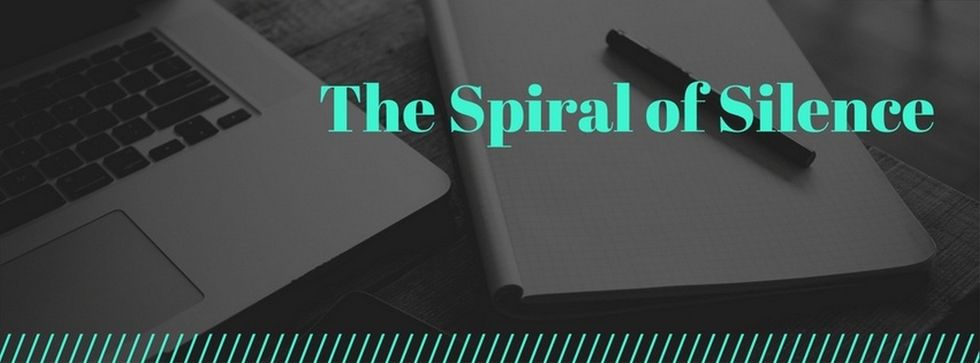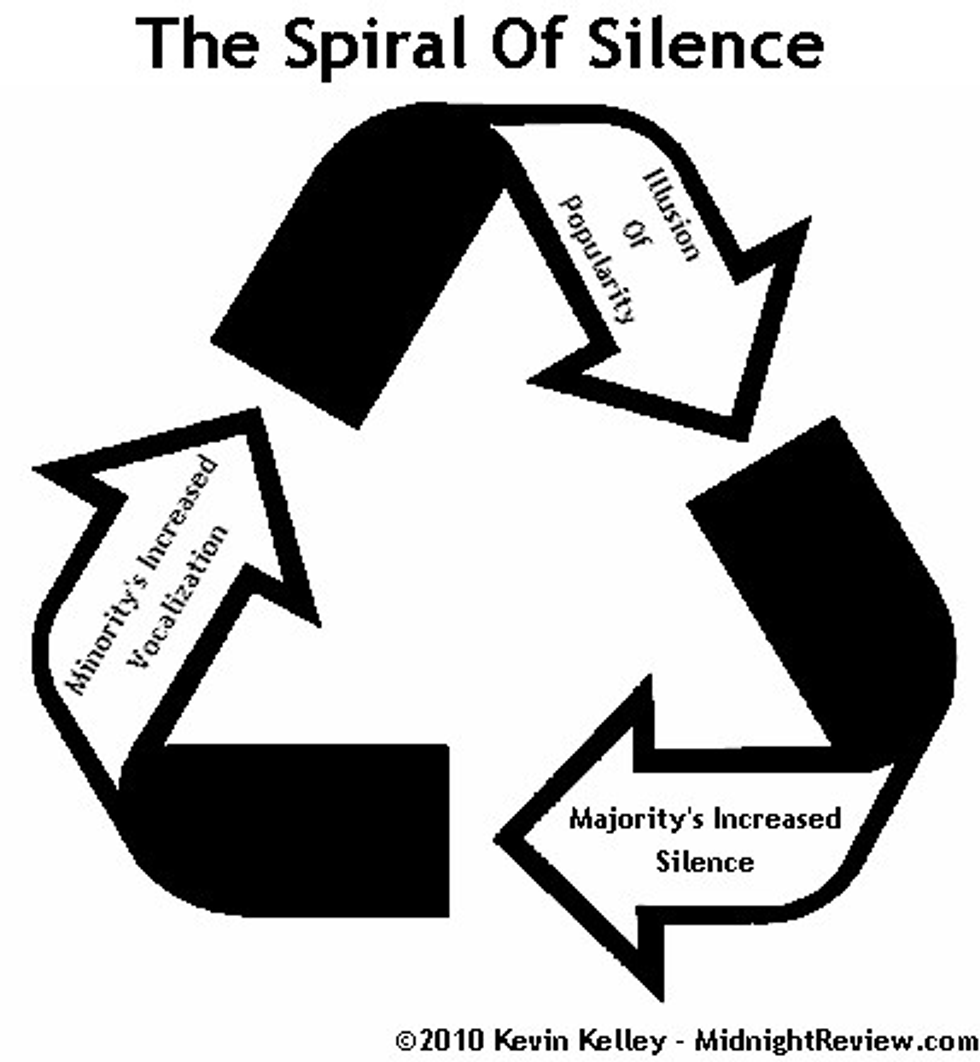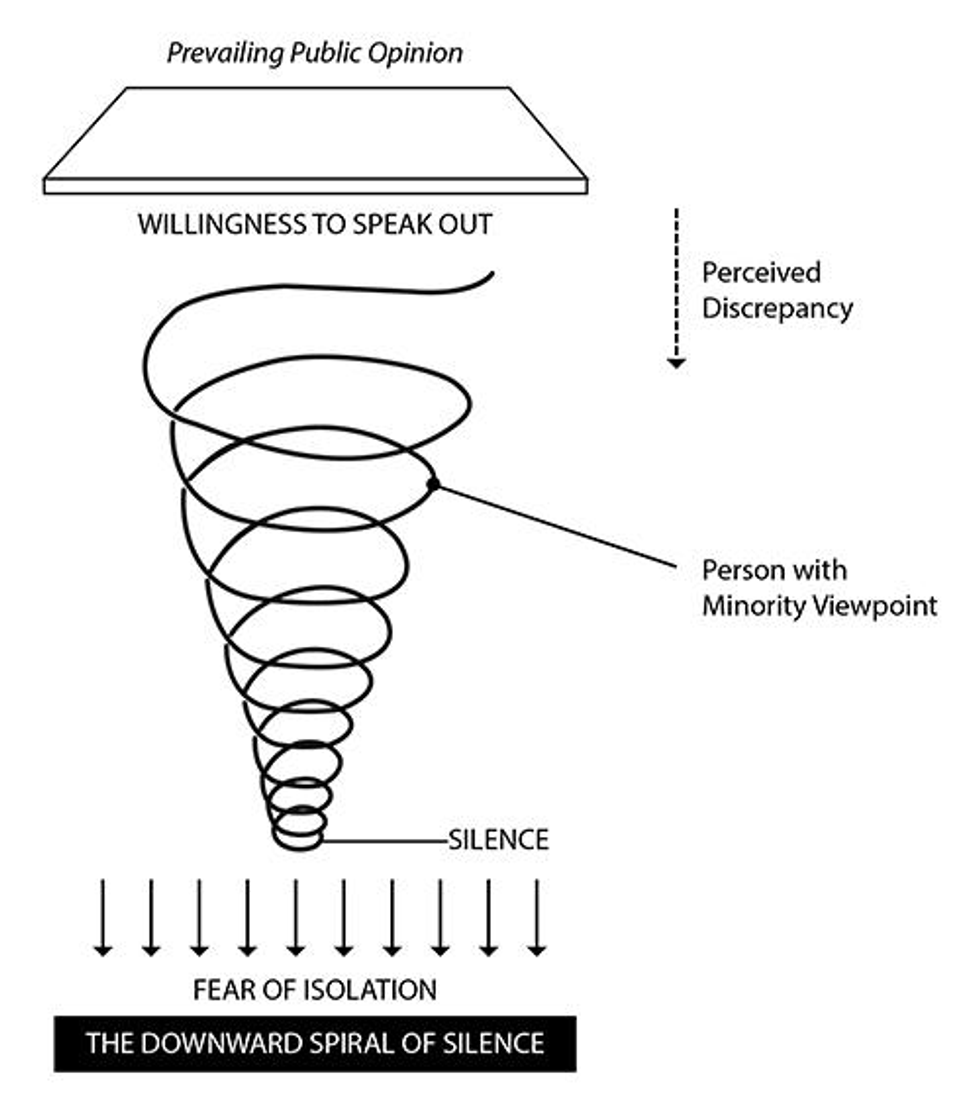In the United States of America, we have the concept of Freedom of Speech as stated in the Bill of Rights; it was written so everyone is able to speak their minds without the fear of retribution. However, this concept is convoluted and does not occur as intended today; not everyone is able to speak and many do not feel comfortable speaking or typing on issues they feel others may disagree on. This was clear and prevalent in the 2016 election. In any group, there are differing opinions, whether those differences are small or large which is not only normal but productive
. In a group there will be an opinion of the majority and an opinion for the minority; both opinions can be valid and have facts to back it up. The issue that our country has been struggling recently is the inability to identify how many people fit into what opinion. Staying silent occurs because one party is uncomfortable or even feels threatened to speak about their views. This concept called 'spiral of silence' and it is very prevalent to American society in the past forty years. Because it is essential that populations are made of aware of the spiral of silence, one should examine effects of network size and repercussions of staying silent, so that they can better voice their opinion, understand a network’s true majority and minority, and alienation should decrease.Research about the “Spiral of Silence” is expansive over several fields including but not limited to political science, media, telecommunications, sociology, and psychology. It is quintessential to see overlaps if America has a culture of fear and intimidation for dissenting opinions. Notably, Noelle-Neumann discussed the concept of the ‘spiral of silence’ in 1974. In any group, there will be two opinions: the perceived majority and the perceived minority. The concept of the spiral of silence refers to the fact that people are less likely to express opinions when they feel it will not be liked and lead to isolation.
As a result, only people from one side articulate their thoughts and beliefs (Shultz & Roessler, 2012). Spiral science occurs when you perceive that your opinion will be disliked, you choose to be silent. When you are silent, other people will think that other opinions will not be spoken out (and so on and so on thus the spiral part). Due to fear of being isolated, dissenting opinions remain unvoiced. Even though other people may have wanted to say the same thing as you but because one spoke up, no one else did either. Researchers including Hampton in 2014 found that this is also true on social media. The spiral of silence leads to the perception of a dominant idea.This theory reaches several fields including but not limited to media, politics, and sociology. It relates to elections including the 2016 Presidential election. The spiral of silence effects everyone, no matter who they are, what their occupation is, whether they are a citizen or not, and regardless of where in the world they live. The spiral of silence effects people everyday, in person and online. Perception of a reality will impact the true reality of a society.
Overall people should understand to listen to both sides of an issue. All humans but especially leaders should be aware to include everyone and encourage them to speak their mind, even if their opinion is not the dominant opinion. Everyone’s opinion should be heard with an open mind because it is the first step to stop alienation and start having more inclusion.





















